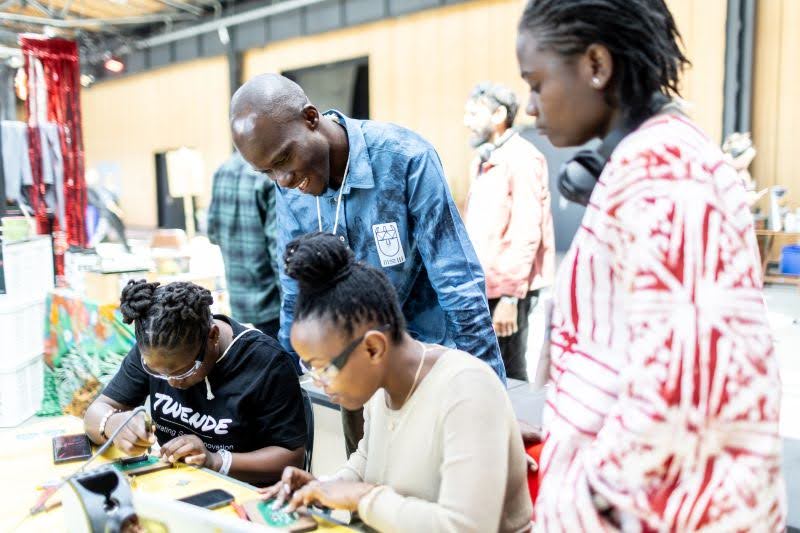mAkE at Maker Faire Barcelona – a hub of hubs
- July 13, 2022
- 4 min read
Speaker: Andrew Lamb, Chair of Internet of Production
There are certain places on this planet that have pioneered the hardware digital innovation hubs that we call “makerspaces”. Moreover, these cities (and they are usually cities) have become hubs for the growth of the maker movement, helping it to thrive and to flourish. They are to hardware today what ‘Silicon Valley’ was to software in the 1970s. In Asia, they include Shenzhen, Seoul and Cebu. In the Americas, they include Boston, San Francisco and Santiago. In Africa, they include Nairobi, Kumasi and Cairo. In Europe, Barcelona stands out. But I had never seen the maker movement in Barcelona for myself. So I was delighted when Maker Faire Barcelona invited me to speak about the mAkE project there last weekend.
It was a stunning, hot and sunny day on Saturday and Day 2 of the Maker Faire was in full swing. People staying at my hotel were discussing in the lobby which of the day’s workshops they wanted to attend. As I walked over, I saw a mother and her three young children scouting around trying to find the right entrance… and the delight when they arrived to find a stall for a rocket company (who make actual rockets that go into space) at the entrance. The faire had a big focus on plastic recycling and materials innovations, education sets and beautiful creations for the home – all made locally. Nearby, FabLab Barcelona was running a full day of talks in English and Spanish, save for the afternoon break for a nice siesta.
Barcelona is a hub of hardware digital innovation hub innovators. It plays host to the Institute for Advanced Architecture of Catalunya (IAAC), which has become a hub for the maker movement through its leadership and participation in many European Commission funded projects. IAAC hosts FabLab Barcelona, a leading light in the global FabLab community, in a traditional warehouse space that is packed with modern tools. Barcelona’s university UVic-UCC hosts leading academic researchers of the maker movement. The FabCity network and the Fabricademy programme started life in Barcelona. And the city hosts many companies, organisations and start-ups that are built upon the maker movement. Indeed, the Maker Faire was only able to provide a small glimpse of the full range of ideas, thinking and making that is happening in this city.
The mAkE project is also a hub of hubs, because our project consortium is a network of makerspace networks. Already, only a few months in to our project, I can already tell that our consortium will – like Barcelona – pioneer and progress the role of makerspaces in the societies and economies that surround them.
There are people in Barcelona that I have wanted to meet face-to-face for years. So I am very grateful to the mAkE project for finally making my visit there happen. The connections I have made there are already feeding into the way we implement the mAkE project. These include online learning content in different languages, makerspace management systems, manufacturer surveys, metrics, business model innovations and Web3.0 concepts.
After our first mAkE project gathering in Berlin earlier in the month (Berlin is another European city that stands out for its contributions to the maker movement – we saw some wonderful hubs and initiatives there too), visiting Barcelona has helped me to imagine what the future might look like when the impacts of our mAkE project are fully realised: places in Africa and Europe that have embraced a new paradigm of production, with active citizens that create not just consume and which support networks of emerging entrepreneurs whose ideas will reach every place on this planet.
















